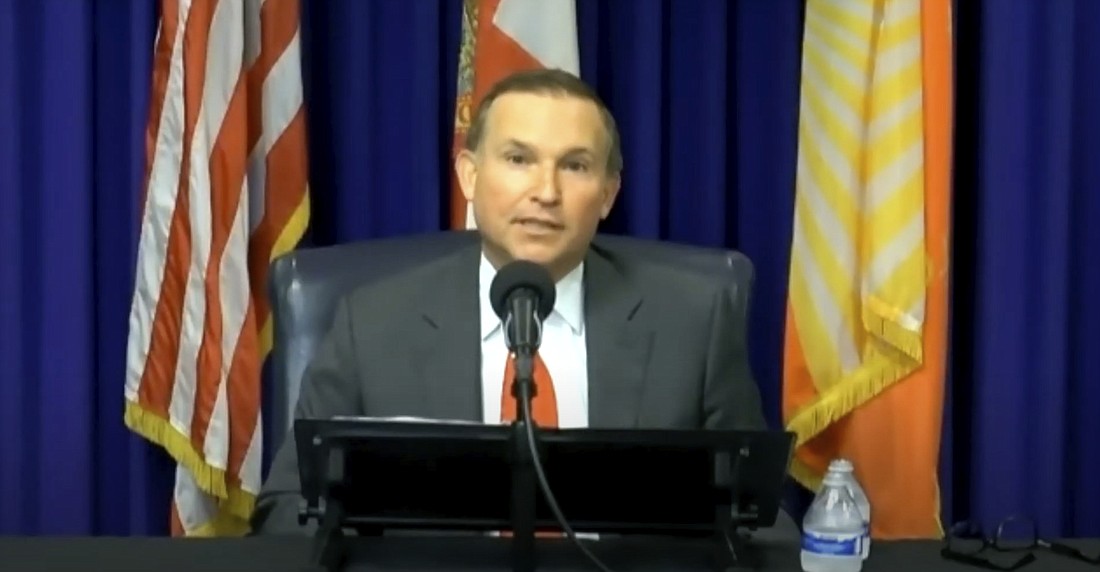
Jacksonville Mayor Lenny Curry proposes a $1.34 billion fiscal year 2020-21 general fund budget with no tax increases and an emphasis on infrastructure projects for Northwest Jacksonville and sea level rise resiliency.
Curry offered a plan with a 5.6% increase in spending over the $1.267 billion budget approved in 2019, despite tax impacts by COVID-19.
The mayor told members of City Council during his annual budget address July 15 that spending and projects in a proposed $239 million capital improvement program were drafted through the lens of the global pandemic’s impact.
“We need to recognize what a difference a year can make,” Curry said. “When I presented a budget to you last year, every projection indicated we would continue to have record levels of economic growth ahead of us. Now, with the impact of COVID-19, we face a different set of challenges and opportunities.”
Curry administration officials offset a $14.408 million, or 7.9%, drop in shared state sales tax from 2019, because of the impact of COVID-19, with a $50.66 million increase in ad valorem property tax revenue and $35 million more in borrowed money, according to a revenue breakdown in the budget.
The drop in sales tax was not as high as the $30 million estimated drop Curry’s CFO Patrick “Joey” Grieve told Council to expect during a Finance Committee meeting in April.
The CIP includes $100 million in infrastructure spending targeting Council districts 7, 8, 9 and 10 in Northwest Jacksonville, which Curry said is an effort to help close historical racial inequities demanded by protesters in late May and early June.
“I’ve also heard the righteous demands from our community to address social justice and the economic disparities in our community,” Curry said. “That includes infrastructure promises made long ago when our city was consolidated that have yet to be fully realized.”
The 2020-21 CIP includes 121 projects, according to budget documents, with $47 million in spending on hydrology and resiliency infrastructure.
Curry said the money spent on drainage and smaller waterway improvements will complement the Council Special Committee on Resiliency’s work toward establishing long-term policies to mitigate the impacts of sea level rise on city infrastructure, private development and the St. Johns River and its tributaries.
Under the 2020-21 budget proposal, the city’s millage rate would stay flat at $11.4419 per every $1,000 of taxable property value.
The Council could change that as it reviews and amends the spending plan during August budget hearings.
After Curry’s speech, Council Finance Committee Chair Matt Carlucci and Council President Tommy Hazouri left open the possibility of a property tax increase, which Carlucci said could allow individual Council members to add funding for their own budget priorities.
“If we keep it like it is, we’re going to have to work within the budget that’s been passed to us by the mayor, and that very well may be the case. But if we want a little cushion, then there might be an increase in the millage that would give us the wiggle room to refine some of that,” Carlucci said.
The Council has a July 28 deadline to set the rate.
City Chief Administrative Officer Brian Hughes told Council members that the mayor would not automatically veto a budget approved with a millage increase.
“I’ll say it this way: The mayor charged me with a balanced budget with no tax or fee increases. If the Council proceeds and makes a case … I suppose he’d consider it. I’ve not had that conversation,” Hughes said.
Council members Al Ferraro and Rory Diamond said they likely would not vote in favor of a budget that includes a tax increase.